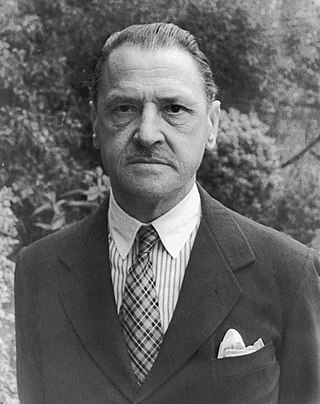
William Somerset Maugham was an English writer, known for his plays, novels and short stories. Born in Paris, where he spent his first ten years, Maugham was schooled in England and went to a German university. He became a medical student in London and qualified as a physician in 1897. He never practised medicine, and became a full-time writer. His first novel, Liza of Lambeth (1897), a study of life in the slums, attracted attention, but it was as a playwright that he first achieved national celebrity. By 1908 he had four plays running at once in the West End of London. He wrote his 32nd and last play in 1933, after which he abandoned the theatre and concentrated on novels and short stories.
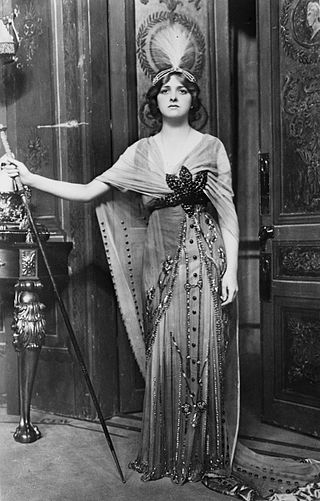
Dame Gladys Constance Cooper was an English actress, theatrical manager and producer, whose career spanned seven decades on stage, in films and on television.

The Noël Coward Theatre, formerly known as the Albery Theatre, is a West End theatre in St. Martin's Lane in the City of Westminster, London. It opened on 12 March 1903 as the New Theatre and was built by Sir Charles Wyndham behind Wyndham's Theatre which was completed in 1899. The building was designed by the architect W. G. R. Sprague with an exterior in the classical style and an interior in the Rococo style.
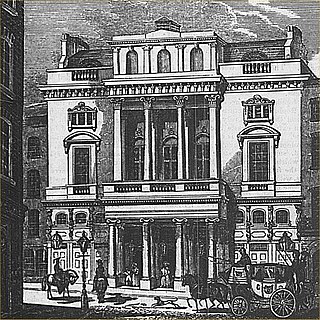
The St James's Theatre was in King Street, St James's, London. It opened in 1835 and was demolished in 1957. The theatre was conceived by and built for a popular singer, John Braham; it lost money and after three seasons he retired. A succession of managements over the next forty years also failed to make it a commercial success, and the St James's acquired a reputation as an unlucky theatre. It was not until 1879–1888, under the management of the actors John Hare and Madge and W. H. Kendal that the theatre began to prosper.

Evelyn Laye was an English actress and singer known for her performances in operettas and musicals.

The Constant Wife, a play written in 1926 by W. Somerset Maugham, is a comedy whose modern and amusing take on marriage and infidelity gives a quick-witted, alternative view on how to deal with an extramarital affair.

Dame Irene Boucicault DBE, née Barnes, known professionally as Irene Vanbrugh was an English actress. The daughter of a clergyman, Vanbrugh followed her elder sister Violet into the theatrical profession and sustained a career for more than 50 years.

The Lyric Theatre is a West End theatre in Shaftesbury Avenue in the City of Westminster. It was built for the producer Henry Leslie, who financed it from the profits of the light opera hit, Dorothy, which he transferred from its original venue to open the new theatre on 17 December 1888.
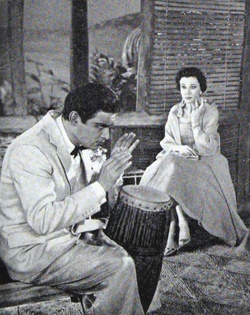
South Sea Bubble is a play by Noël Coward, described in the published text as a light comedy. It was written in 1949 but not performed until 1951, and not in its final form until 1956. Under the title Island Fling it was given in the US at the Westport Country Playhouse and the Cape Playhouse in Massachusetts in July and August 1951 with Claudette Colbert in the starring role. After a pre-London tour the British production opened at the Lyric Theatre in the West End in April 1956, starring Vivien Leigh. It ran for 276 performances.
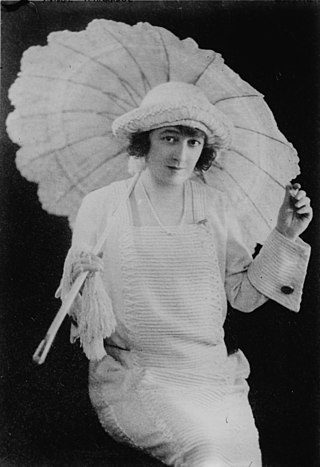
Madge Titheradge was an Australian-born actress who became a leading actress in the West End of London and on Broadway.

The Globe was a Victorian theatre built in 1868 and demolished in 1902. It was the third of five London theatres to bear the name, following Shakespeare’s Bankside house, which closed in 1642, and the former Rotunda Theatre in Blackfriars Road, which for a few years from 1833 was renamed the Globe. The new theatre was also known at various times as the Royal Globe Theatre or Globe Theatre Royal. Its repertoire consisted mainly of comedies and musical shows.

Toole's Theatre, was a 19th-century West End building in William IV Street, near Charing Cross, in the City of Westminster. A succession of auditoria had occupied the site since 1832, serving a variety of functions, including religious and leisure activities. The theatre at its largest, after reconstruction in 1881–82, had a capacity of between 650 and 700.

For Services Rendered is a play by Somerset Maugham. First performed in London in 1932, the play is about the effects of World War I on an English family.
The Little Theatre in the Adelphi was a 250-seat theatre in London, in a site to the south of the Strand. It was opened in 1910, damaged in a German air raid in the First World War and rebuilt in 1919–20. German bombs again hit the theatre in 1941 so severely damaging it that it remained empty until it was demolished in 1949.

Malcolm Cherry, was an English actor.
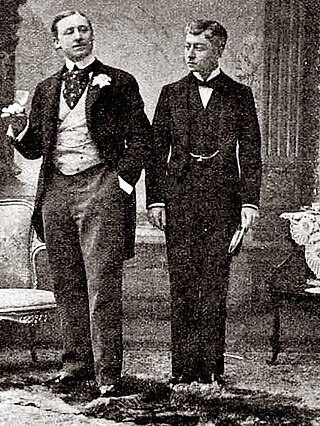
Frederick Kinsey Oman Peile, known professionally as F. Kinsey Peile or Kinsey Peile, was a British actor and playwright. During a forty-year stage career he created roles in plays by Oscar Wilde and Noël Coward, starred in others by Henrik Ibsen and Somerset Maugham, wrote ten plays for the West End and appeared in several films.
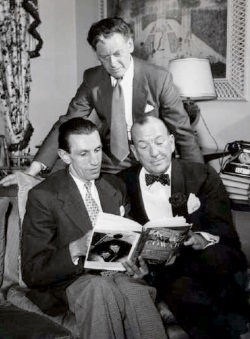
Raymond Mander and Joe Mitchenson were theatre historians and joint founders of a large collection of theatrical memorabilia.

Point Valaine is a play by Noël Coward. It was written as a vehicle for Alfred Lunt and his wife Lynn Fontanne, who starred together in the original Broadway production in 1934. The play was not seen in Britain until 1944 and was not staged in London until 1947.

Jennifer Gray was a British actress, frequently seen in the West End and on tour between 1934 and 1954. She made only two cinema films, but was often seen on BBC television in the late 1940s. Among the roles she created onstage were Daphne Stillington in Noël Coward's Present Laughter and Queenie Gibbons in his This Happy Breed, which premiered on successive nights in September 1942.
The playwright, novelist and short-story writer W. Somerset Maugham, was a prolific author from the late 19th century until the 1960s. Most of his earliest successes were for the theatre, but he gave up writing plays after 1932. Many of his plays have been adapted for broadcasting and the cinema, as have several of his novels and short stories. The New York Times commented in 1964, "There are times when one thinks that British television and radio would have to shut up shop if there were not an apparently inexhaustible supply of stories by Maugham to turn into 30-minute plays. One recalls, too, the long list of movies that have been made from his novels − Of Human Bondage, The Moon and Sixpence, The Painted Veil, The Razor's Edge and the rest.



















